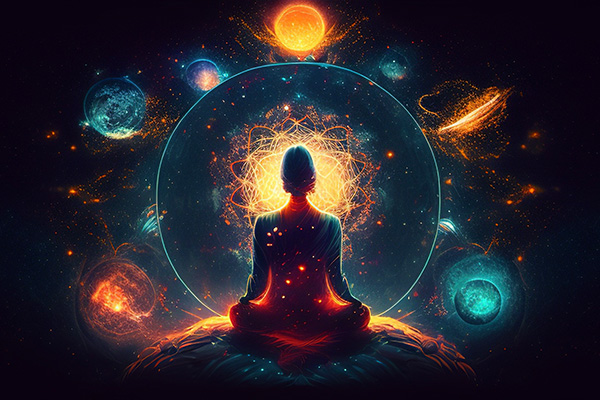survival
The Power Of Knowing Your ‘Why’
 In a recent spiritual counseling session, I had the privilege of working with a woman who was facing a profound life challenge — stage 2 locally advanced colon cancer.
In a recent spiritual counseling session, I had the privilege of working with a woman who was facing a profound life challenge — stage 2 locally advanced colon cancer.
She spoke with a quiet resilience as she recounted her journey through chemotherapy before surgery, followed by four additional rounds of adjuvant chemotherapy.
There was little emotion in her words, but the weight of her experience was undeniable. It was a story of survival, perseverance, and the sheer will to move forward.
She then admitted that she longed to live a healthier lifestyle, but struggled with unhealthy eating habits. She had gained a significant amount of weight after her surgery, and despite her best intentions, she found it difficult to resist sweets and processed foods.
After hearing her story, I gently reminded her that I could not give her medical advice. Nor am I a nutritionist, and I advised her that professional guidance was essential for her dietary needs.
What I could offer, however, was a way to break the cycle of unhealthy habits. And I could help nurture her mind and emotions and guide her toward a life of greater wholeness and balance.
She lit up with hope. “That would be wonderful!” she exclaimed.
How To ‘Face Everything And Rise’ (F.E.A.R.)
 It’s okay to feel afraid sometimes – some fear responses are a natural and vital part of our built-in self-protection system. Rooted in our primal survival instincts, fear helps us identify and respond to real threats, such as a raging fire or a dangerous wild animal.
It’s okay to feel afraid sometimes – some fear responses are a natural and vital part of our built-in self-protection system. Rooted in our primal survival instincts, fear helps us identify and respond to real threats, such as a raging fire or a dangerous wild animal.
Survival fear arises in response to immediate, tangible threats to our safety or well-being. It’s a necessary, life-preserving mechanism based on objective, real-world risks that ensure our survival. By activating the body’s fight-or-flight response, it enables us to act quickly and stay safe.
But not all fears are instinctual, nor do they serve our highest good. Irrational fears arise from societal conditioning, cultural expectations, false beliefs, past traumas, or imagined scenarios. These fears are learned or imagined, not instinctual.
Unlike survival fear, irrational fears reflect internalized doubts, imaginery threats and false narratives that serve no protective function at all. Instead, they just interfere with our personal growth, decision-making, and well-being.
Conditioned fears are typically exaggerated or irrational, existing more in the mind than in reality. Examples include fear of failure, fear of rejection, or fear of not living up to social standards. Self-limiting fears can trap us in cycles of self-doubt and hesitation, limiting our ability to take risks, grow, and live wholeheartedly.
To live our best lives, we must learn to recognize these irrational fears, challenge their validity, and prevent them from taking control of our life and well-being. By stepping back and evaluating the source of our fears, we can release what no longer serves us, reclaim our joy, and unlock our full potential.
Make Money The Root Of All Good!
 The desire for financial security and increased wealth often conflicts with some people’s deeply held spiritual beliefs, causing them much inner conflict and guilt. Sayings like “money can’t buy happiness,” “money is the root of all evil,” and “you can’t take it with you” don’t help either.
The desire for financial security and increased wealth often conflicts with some people’s deeply held spiritual beliefs, causing them much inner conflict and guilt. Sayings like “money can’t buy happiness,” “money is the root of all evil,” and “you can’t take it with you” don’t help either.
But what if we flipped the script? What if the path to money and wealth is also the path to peace and deeper fulfillment in our lives?
There is also the saying: “Money is a good servant, but a bad master.” What if money in the hands of kind, compassionate and conscious people is exactly what the world needs?
What if we stopped thinking of money as evil and started thinking of it simply as a tool for your spiritual growth and fulfillment? What if we began to see money as something good and benevolent that can be used for the greater good?
As spiritual beings, we chose to incarnate into this very time-space reality, fully understanding the rules of this dimension. One of the rules we understood was the need for physical survival and material security in this world.
Many generations of ancestors who incarnated before us fought hard to survive here in physical form, inventing new and clever ways to make the struggle to keep body and soul together a little easier for us. In the process, they co-created the Earth reality as we know it today – a co-created reality that revolves around a monetary economic system, for better and worse.
The Anchoring Vitality Of The Root Chakra
 The chakras play a pivotal role in our energetic well-being. These energy centers, rooted in ancient Eastern philosophies, govern various aspects of our physical, emotional, and spiritual functioning and health.
The chakras play a pivotal role in our energetic well-being. These energy centers, rooted in ancient Eastern philosophies, govern various aspects of our physical, emotional, and spiritual functioning and health.
At the very base of this intricate energy system lies the root chakra, an energetic foundation that holds the key to our sense of security, stability, and connection to the world around us.
The root chakra, also known as the base chakra or muladhara in Sanskrit, is the first of the seven main chakras at the base of the spine. Its significance cannot be overstated, as it is the energetic anchor for the entire chakra system. This energy center is associated with red, symbolizing vitality, strength, and the life force that flows through us.
At its core, the root chakra is linked to our most primal instincts and survival needs. Its activation is crucial for establishing a solid foundation for a balanced and fulfilling life. When the root chakra is in harmony, it fosters a sense of security, grounding, and a deep connection to the physical world.
One of the primary functions of the root chakra is to address our basic survival needs, including food, shelter, and a sense of safety. When this chakra is balanced, we feel secure in our environment, enabling us to navigate life with confidence and stability. On the contrary, an imbalanced root chakra may manifest as fear, anxiety, or a constant sense of insecurity.
Comparison Poisons The Heart, Mind And Soul
 When we are going through difficult times, we tend to compare our struggles and suffering to the lives of others and measure ourselves by their perceived happiness, joy and success.
When we are going through difficult times, we tend to compare our struggles and suffering to the lives of others and measure ourselves by their perceived happiness, joy and success.
We often do this these days by comparing our own lives to what others post on social media. Then we judge and mentally torture ourselves for not living up to other people’s highlight reels of happiness and good fortune.
Sure, it is sometimes beneficial to self-reflect and strive for more based on the examples of others who serve as our role models. However, when we indiscriminately compare our own life journey to everyone else’s, we end up diminishing our own uniqueness and value.
While social comparison can motivate us to improve and grow, it can also lead to toxic self-judgment, envy, resentment, and extreme unhappiness. Constantly focusing on the highlights of other people’s lives quickly becomes toxic and self-destructive.
However, this tendency is not a character flaw in some of us. In fact, it is a natural evolutionary instinct that we all have. Our ancestors survived by living in social groups. Our tendency to compare ourselves to others is therefore a very common human trait, rooted in our evolution as a species.

